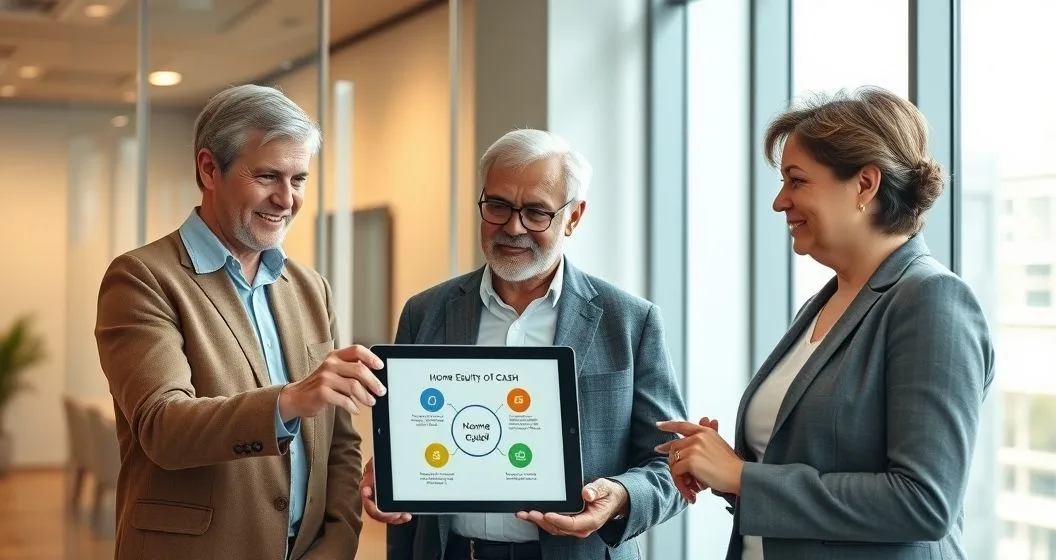Reverse mortgages can be complex and are frequently misunderstood by seniors, leading to unnecessary concerns or missed opportunities. This article clarifies the most persistent myths about reverse mortgages to help seniors evaluate this option realistically and responsibly.
Myth #1: “I’ll Lose Ownership of My Home”
One of the biggest misunderstandings is that taking out a reverse mortgage means losing title or ownership. This is false. Borrowers retain full ownership and title of their home and can live in it as long as they continue to pay property taxes, homeowner’s insurance, and maintain the property. This continuity remains unless loan terms are violated.
Myth #2: “Reverse Mortgages Are Only for Desperate People”
Many mistakenly associate reverse mortgages with financial distress. In reality, many financially stable seniors use them strategically as part of retirement income planning, to pay off debts, or manage unexpected expenses. They are a flexible financial tool—not a sign of failure.
Myth #3: “The Bank Will Take My Home When I Die”
This myth creates fear about heirs losing inheritance. However, heirs have options: they may repay the loan balance or refinance to keep the home. There is usually a six- to twelve-month period for repayment after the homeowner’s death, preventing automatic loss of the home.
Myth #4: “Reverse Mortgages Leave Me With No Equity”
While a reverse mortgage draws on home equity, borrowers usually retain some equity, particularly if the property appreciates. The loan balance grows over time with interest, but borrowers are not obligated to access the full loan amount immediately, allowing equity to remain.
Myth #5: “Reverse Mortgages Are Full of Hidden Fees and Scams”
Reverse mortgages do include fees such as origination, closing, and servicing fees, but all fees must be disclosed upfront and are regulated by the U.S. Department of Housing and Urban Development (HUD). To avoid scams, work with HUD-approved counselors and reputable lenders.
How Does a Reverse Mortgage Work?
Reverse mortgages let qualifying seniors access a portion of their home’s value without monthly payments on the loan itself. The balance is repaid upon sale, permanent move-out, or death. Borrowers must continue to pay taxes, insurance, and upkeep. Unlike traditional mortgages, the loan accrues interest that is added to the balance over time.
Who Qualifies for a Reverse Mortgage?
- Age 62 or older
- Primary residence with considerable equity or a low existing mortgage balance
- Ability to keep current on property taxes, insurance, and maintenance
- Completion of a HUD-approved counseling session
Practical Tips for Seniors Considering a Reverse Mortgage
- Complete independent counseling to fully understand benefits and risks (Reverse Mortgage Counseling Requirement).
- Compare offers from multiple HUD-approved lenders to ensure competitive terms.
- Maintain financial planning to cover ongoing property expenses and avoid foreclosure risk.
- Explore alternatives like downsizing, home equity loans, or personal loans when appropriate (Home Equity Options: HELOC vs Home Equity Loan vs Reverse Mortgage).
- Communicate plans clearly with family to prevent future misunderstandings.
Common Mistakes to Avoid
- Using all funds immediately rather than pacing withdrawals to supplement income steadily.
- Neglecting property tax and insurance payments, endangering homeownership.
- Overestimating potential funds from a declining home market.
- Skipping professional advice or falling prey to high-pressure sales tactics.
Frequently Asked Questions
Q: Can I sell my home if I have a reverse mortgage?
Yes, you can sell anytime. The loan balance must be repaid from the sale proceeds.
Q: What if I move to assisted living or a nursing home?
If you live outside the home for more than 12 consecutive months, the loan generally becomes due.
Q: Can I get a reverse mortgage if I already have a mortgage?
Yes, but the reverse mortgage will first pay off the existing mortgage.
Q: Are reverse mortgage proceeds taxable?
No, they are considered loan advances, not income, and are generally tax-free.
Summary Table: Reverse Mortgage Myths vs Facts
| Myth | Fact |
|---|---|
| Lose ownership of home | Retain title and ownership if obligations met |
| Only for desperate seniors | Used by many for financial planning and stability |
| Bank takes home after death | Heirs can repay/refinance to keep the home |
| Lose all equity | Equity reduces gradually; some often remains |
| Hidden fees and scams | Fees are disclosed, regulated, and avoid scams with HUD-approved help |
By dispelling these myths, seniors can make clear, confident decisions about reverse mortgages, integrating them effectively into retirement and financial plans. For authoritative guidance, consult the U.S. Department of Housing and Urban Development (HUD Reverse Mortgages) or the Consumer Financial Protection Bureau (CFPB Reverse Mortgages).
For more detailed information on reverse mortgages and home equity, see our related articles on Reverse Mortgages: Pros, Cons, and Eligibility and Home Equity Options: HELOC vs Home Equity Loan vs Reverse Mortgage.



